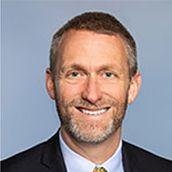
Alexander David Borowsky
Dr. Borowsky is a surgical and molecular pathologist with expertise in cancer diagnostics and model systems for cancer research. His research is primarily focused on human breast cancer and mouse models for this disease with extensive experience and accomplishments on many aspects of experimental pathology and animal models of human disease. He is a translational scientist with expertise in assay development and interpretation in the clinical setting, including experience with radiologic-pathologic image registration and comparative analysis, immunohistochemistry, FISH, and tissue and fixative preparation for conventional and innovative molecular analysis. His lab has pioneered techniques for mammary gland transplantation experiments, and has generated transgenic cancer models. Specific areas of interest in the laboratory include the tumor immune microenvironment, pre-cancer progression and cancer stem cell origins, cancer promoting microenvironments, and regulation of progression and reversion. The lab has a long track record of experimental pathology including interpretation of phenotypes, developmental and cancer, and interpretation of novel immunohistochemical studies, functional imaging technology, image analysis, and data informatics. Additional research interests extend to the development of novel in vivo imaging modalities, and use of these in preclinical and clinical trials. He directs clinical trials at UC Davis, including the completed Leica Genensis study for validation of digital whole slide imaging for pathology diagnosis, and ongoing WISDOM breast cancer screening, and the All of US NIH Precision medicine cohort studies; and leads the Pathology working group in the NCI MCL consortium and the PreCancer Atlas pilot project.